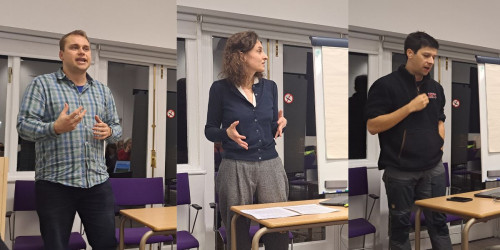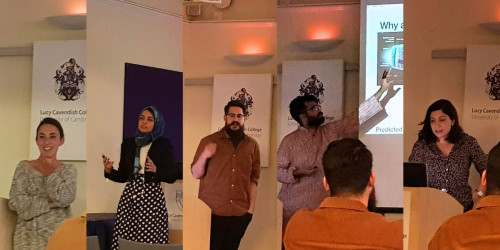
Research at Lucy: talks by our Fellows
Lucy Cavendish Fellows tackle climate change with their interdisciplinary and ground-breaking work.
Dr Suhail Dhawan’s research is based on measuring distances to exploding stars to understand how fast the universe is expanding.
Suhail works at the Kavli Institute for Cosmology, Institute of Astronomy, Cambridge.
His research is based on measuring distances to exploding stars, typically a class of explosions called Type Ia supernovae, to infer how fast the universe is expanding. He’s also interested in using the phenomena that light bends around massive objects, called strong gravitational lensing, to understand the nature of gravity.
Back in May, Dr Suhail Dhawan had a lead investigator programme accepted on the JWST.
Titled First look at high redshift Type Ia supernova cores: Nebular observations of lensed SN Zwicky, the programme aims to study the inner core of a Type Ia supernova, with a lookback time of 4 billion years, to understand its progenitor from the presence of forbidden lines of iron-group elements in its spectrum, a year after explosion.
The JWST, NASA's next flagship infrared observatory, developed in partnership with ESA and CSA, successfully launched on December 25, 2021. After deploying in space and alignment and calibration of the mirrors and instruments, JWST began science operations in July 2022.

Lucy Cavendish Fellows tackle climate change with their interdisciplinary and ground-breaking work.

Lucy Cavendish College researchers showcase their interdisciplinary and innovative projects.

Caroline Zellmer’s research focuses on understanding drug-resistant bacteria to develop alternatives to antibiotics.